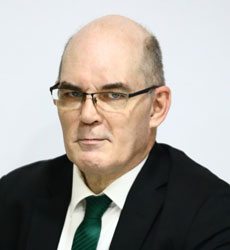ON Monday, a story from the Agence France-Presse (AFP) wire appeared in The Manila Times that almost made me hurl my coffee cup at the wall in disgust. The story was a brief review of a book titled "Not the End of the World" by Hannah Ritchie, the lead researcher at Our World in Data based at Oxford University in the UK. Evidently, someone at AFP let their enthusiasm get the better of them, or it was just a slow news day; however this nonsense ended up on the wire does not really matter.
First of all, the book came out in December of last year, so it is anything but news at this point. For that matter, it wasn't news back then, either; it presents a thesis that has been floating around for as many decades as humanity has been concerned about the climate crisis. It straddles two of the most common forms of climate denial discourse, the "non-transformative solutions" and "change will be too disruptive" forms, according to the rather unimaginative observation that "things are better now for humanity than they ever have been," based on some simplistic observations. Or, as Ritchie is quoted in the AFP story, "We just are unaware of how bad the past was. People are just unaware that at least half of kids died, that diseases were rife, that most people lived in poverty, that most of the world was hungry."
Continue reading with one of these options:
Ad-free access
P 80 per month
(billed annually at P 960)
- Unlimited ad-free access to website articles
- Limited offer: Subscribe today and get digital edition access for free (accessible with up to 3 devices)


